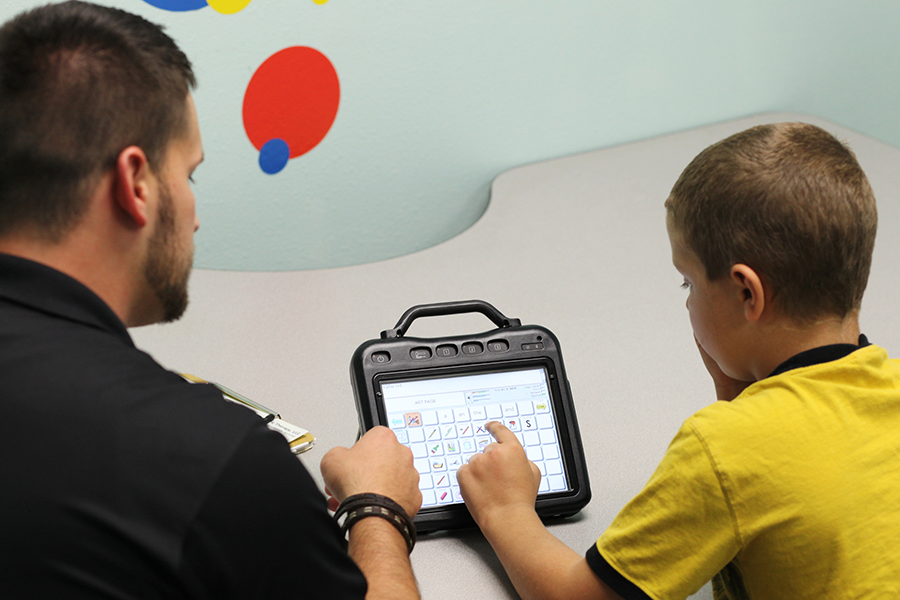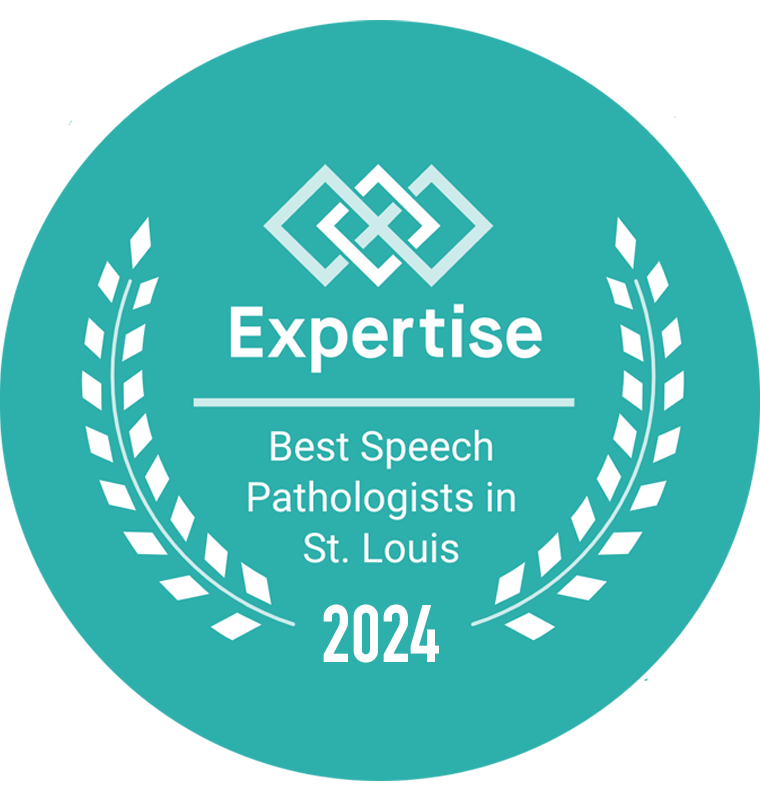Augmentative and Alternative Communication
What is AUGMENTATIVE COMMUNICATION?
AAC stands for "Augmentative and Alternative Communication." AAC is any form of alternative communication ranging from low tech such as sign language or a picture system to high-tech such as a dynamic display speech generating device with multiple access methods and the ability to send texts, use the internet, and control the T.V.
AAC is used for children who have decreased or no use of verbal communication. They cannot depend on their "voice" to communicate their wants, needs, and ideas to the world. Many children who require the use of AAC are unable to use compensatory strategies such as gestures and pointing due to either cognitive, social skills challenges and/or physical disabilities. AAC is essential for any child who is unable to meet their communication needs using natural speech.
The American Speech-Language-Hearing Association defines AAC "as an area of clinical practice that attempts to compensate (either temporarily or permanently) for the impairment and disability patterns of individuals with severe expressive communication disorders (i.e., the severe impairments in speech-language, reading and writing). AAC incorporates the individual's full communication abilities and may include any existing speech or vocalizations, gestures, manual signs, and aided communication. AAC is truly multimodal, permitting individuals to use every mode possible to communicate. The ability to use AAC devices may change over time, although sometimes very slowly, and the AAC system chosen today may not be the best system tomorrow. In any case, an AAC system is an integrated group of four components used by an individual to enhance communication. These four components are symbols, aids, techniques, and/or strategies. (ASHA, 1989, p.107)."
To find out more about AAC visit:
http://www.asha.org/public/speech/disorders/InfoAACUsers.htm

Our therapists have experience with:
- Prentke-Romich Company
- Saltillo
- Tobii-Dynavox
- Late-model SGDs from Tobii and Dynavox pre-merger
- LAMP Words for Life
- TouchChat
- Tobii-Dynavox Compass
- Proloquo2Go
- GoTalk Now
- A wide range of apps developed for iPads and Android technology.
- PODD
- Quick Talker
- GoTalks
- Communication Boards
We also have experience with switch access, eye-gaze, head-pointing, and can work in close contact with PTs and OTs at our facility for positioning and access optimization. We have close working relationships with the representatives from all aforementioned AAC companies as well as companies specializing in access and mounting solutions.
